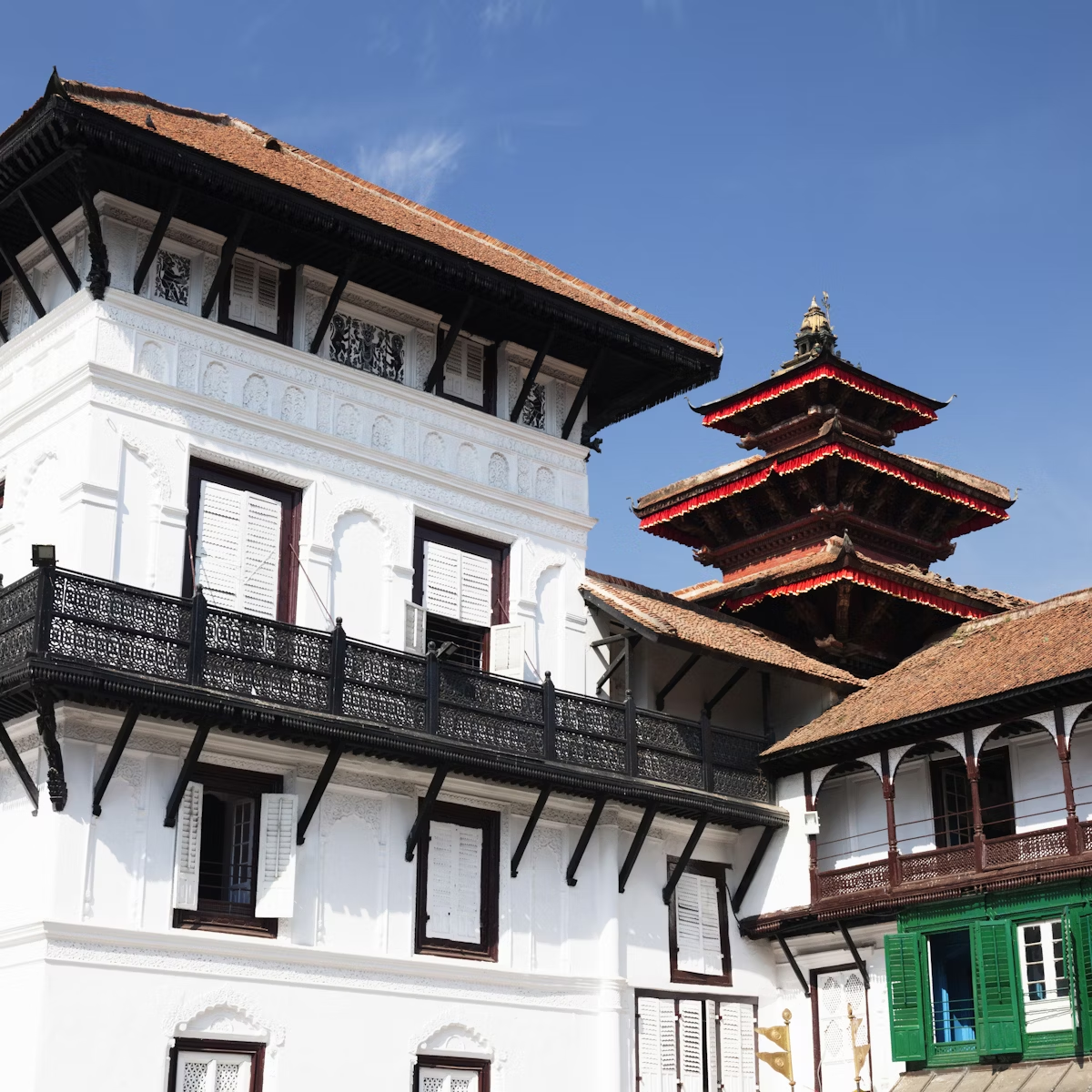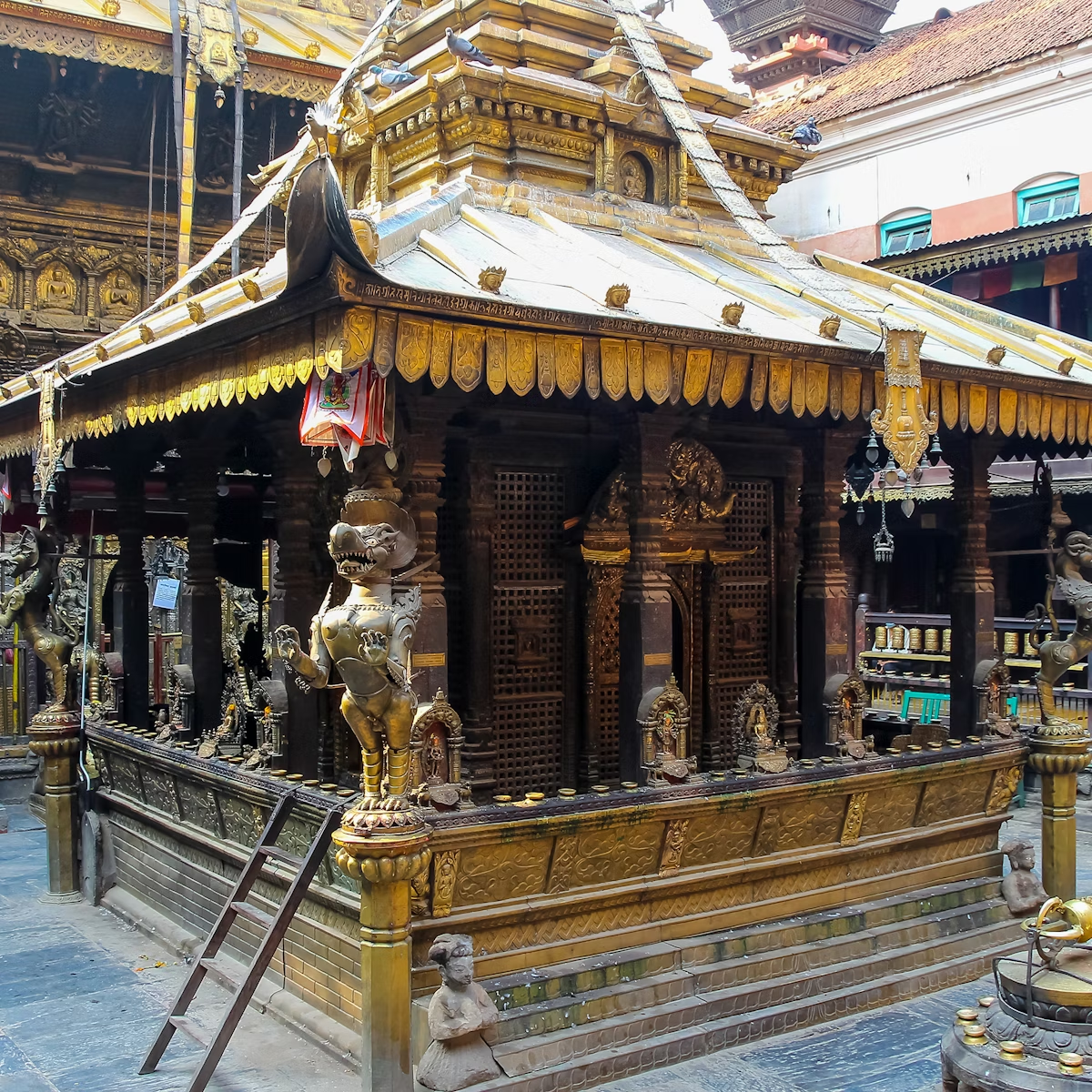Pashupatinath's ghats are often full of life and it's worth taking some time to absorb it all. Devotees ritually bathe in the dubious-looking waters of the Bagmati, holy men perform rituals on the stone steps and children fish for coins from the murky river using a magnet on the end of a string. You may also see families preparing the funeral pyres across the river.
Two footbridges cross the Bagmati in front of the Pashupatinath Temple, entering a garden of stone terraces covered in dozens of small Shiva shrines. These one-room temples are often used as lodgings by wandering sadhus and each contains a central Shiva lingam. Although the shrines are built in many styles, all share certain design features – note the mask of Bhairab, Shiva’s fearsome incarnation, on the south wall, the Nandi statue on the west and the bull-head water spout to the north.
Two flights of steps lead up the hillside between the shrines, passing the damaged but still elaborately frescoed wooden Ram Temple, which is often thronged by visiting sadhus, especially during the Maha Shivaratri Festival. At the top, where the path enters the forest, a side track leads north along the top of the terraces to an excellent viewpoint over the Pashupatinath Temple. Look for the enormous golden trident on the northern side of the temple and the golden figure of the king kneeling in prayer under a protective hood of naga (serpent deities) to the south.
Look also for the interesting lingam with the Shiva face at the northern end of the terrace.







